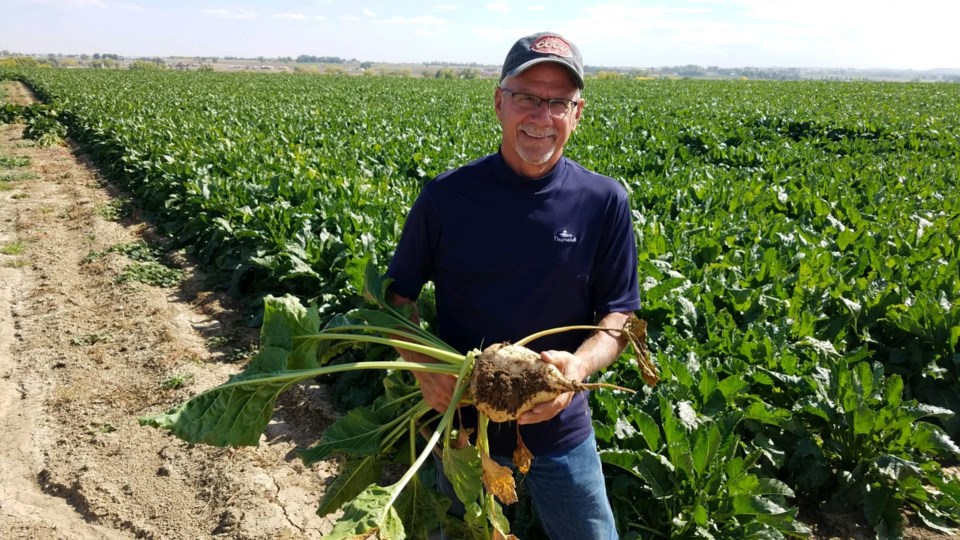Boulder County will phase out the use of a powerful pesticide used on crops grown on county-owned farmland starting later this year.
But sugar beet growers can still use one version of the neonicotinoid — or neonics — pesticide. Farmers have the option as well, in an emergency situation, the Boulder County Commissioner said Thursday.
“I think we have to allow any tool to be available” if a farmer needs to protect a crop, said Commissioner Claire Levy.
Neonics have been used by county farmers for a decade and are effective in protecting sugar beets from the highly-damaging beet leafhopper, Rebecca Larson, vice president/chief scientist for Western Sugar Cooperative told the Leader in October.
The pesticide has been shown to be dangerous to native, beneficial pollinators, including bees, Mike Foster, Boulder County’s agricultural resource manager, said..
The use of neonics on county land rented out to local farmers is a key issue as the county reworks its cropland policies. At Tuesday’s meeting, the commissioners reviewed recommendations on policy changes. They will formally vote on the application of neonics at its Dec. 7 meeting.
The county wants to phase out neonics pesticides effective Dec. 31, 2021 but will allow neonics seed coatings for sugar beets only. That exception was written to let sugar beet farmers adhere to their contracts with Western Sugar Cooperative to use the pesticide, county staff said Thursday.
The commissioners also agreed that under rare and extreme circumstances, farmers can use neonics, Matt Jones, the board chair, said. If crops are “under extreme pressure” the county can grant a one-time exemption, he said.
The proposed ban on neonics drew hundreds of comments both pro and con and resulted in hours of testimony at a meeting of the Boulder County Parks & Open Space Advisory Board in October, Foster said.
“The debate has been robust,” Foster told the commissioners Thursday.



